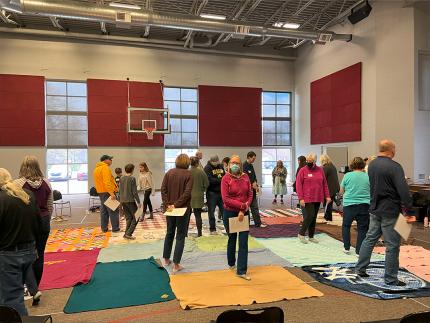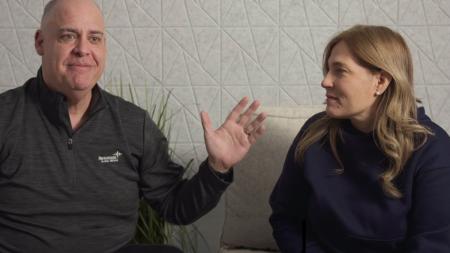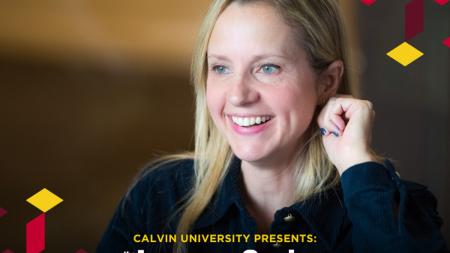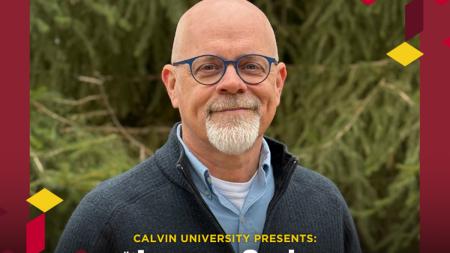One Church’s Journey to Become Antiracist

In late 2020 and then again in early 2023, the Race Awareness Team at Ivanrest Christian Reformed Church in Grandville, Mich., asked the denomination’s racial justice ministry to help them move further along toward racial reconciliation.
They asked the Race Relations staff, who are now part of Thrive, to present discussions and workshops aimed at building awareness and understanding of the ongoing impact of racism in the lives of Ivanrest members and of visitors to the congregation.
Essentially, like dozens of congregations across the Christian Reformed Church in North America, Ivanrest CRC decided to avail itself of some of the many resources that Thrive has available. These are materials that focus on dismantling racism, which, according to the Thrive website, “happens when we change daily interactions between people of different races and when we change systems that privilege people of some races over others.”
“We were pleased that Ivanrest contacted us and were interested in learning more about this topic,” said Idella Winfield, a Thrive staff member.
“We can play a critical role in supporting churches fighting against racism, as the church is seen as a place of moral guidance, community influence, justice, and loving your neighbor, and it can be a place that educates, advocates, and fosters dialogue to center God's call to justice and reconciliation.”
Initially, Mary Westrate, director of discipleship at Ivanrest, asked if the denominational staff members could come to the church in November, which is set aside to celebrate Native American culture, to help people more fully grasp the history of the relationship between the mainstream white society and Indigenous peoples.
“Many people don’t know that history,” said Westrate, whose own heritage is Dutch and Asian.
So staff came to the church on a Sunday in November 2020 to hold a discussion based on a range of questions, said Vivian Cornejo, who is part of Thrive’s racial justice staff. “We talked about such things as ‘What is the history of how the CRC interacted with Native Americans?’ and ‘In what ways has the CRC been different or like other denominations in their interactions?’”
Staff also offered a brief history of the impact of colonization on the Indigenous peoples of North America.
“We often hear about the negative impact of the church and of Western culture on various Indigenous people groups,” said Cornejo. “What are some of those, and what are some positive things that have come from places in which the CRC has worked here in North America?”
In addition, said Cornejo, Darlene Silversmith and Harry Descheene, members of the Race Relations facilitator team, “presented the history of Native Americans from their perspective.”
Among other things, added Cornejo, they spoke about “the fact that the Native American lifestyle was completely different from that of the Europeans,” who believed Native Americans “were inferior, pagan, and uncivilized.”
Looking back, said Cornejo, “we could say the Europeans lacked cultural intelligence, assuming that they were right and that Indigenous people were wrong because their concept of land ownership was different.”
On the next Sunday in November 2022, the racial justice staff returned to Ivanrest to conduct the Blanket Exercise.
Recommended by Synod 2015 for use by all classes and congregations, the Blanket Exercise is an interactive retelling of the history of relationships between Native Americans and North American (mostly European) settlers.
In the Blanket Exercise, while historical events are narrated, blankets representing peoples and the land they lived on are gradually folded into smaller and smaller squares to show that Native Americans were decimated by disease and forced off their land, said Cornejo.
Deann Wright, a member of Ivanrest’s Race Awareness team, said they appreciated being able to learn so much by participating in the exercise.
“We had gathered information on the Blanket Exercise from the website and thought it would be a great presentation to recommend for our church,” said Wright.
“We appreciated that the content was interactive, with the audience taking an active role in the facilitation of the exercise. We also liked that some of the presenters were Indigenous people, who also shared parts of their stories. The discussion after the exercise also helped the participants reflect on what they learned.”
Some participants said the exercise gave them a fuller idea of history. For instance, a few people said they hadn’t known that Abraham Lincoln gave the order for the largest mass execution in U.S. history – in which 38 Indigenous people were hanged in Minnesota on Dec. 26, 1862.
Also during the discussion Darlene Silversmith, an Indigenous woman, said: “The Blanket Exercise is a great start. . . . But don’t mark the checkbox ‘done’ after going through the exercise.
“We Native Americans exist not only in November. Our present life is often worse than it is for many people in Third World countries – no running water, no electricity, no paved roads, high rates of alcoholism and suicide.”
The Thrive racial justice staff also delivered a two-part presentation at Ivanrest CRC on Feb. 19, 2023.
During that presentation, said Cornejo, they offered more history on the issue of racism and encouraged Ivanrest to continue on its journey to better understand and to continue to seek to break down the barriers separating people of different races and ethnicities.
Leaders and participants discussed such things as the following:
- How can Ivanrest know how and when it is truly becoming an antiracist congregation?
- What are the challenges and fears that Ivanrest has in doing racial justice work?
- How can Ivanrest face these challenges and fears?
- Can Ivanrest invite other churches to meet to discuss fighting racism?
“We also talked about how the subject of racism is controversial and uncomfortable, and that we prefer to avoid it,” said Cornejo.
“Nobody likes to talk and hear criticism about the body of
Christ. But, regardless, it remains as part of the church whether we like it or not.”
Wright said that connecting with Thrive underscored and helped to encourage Ivanrest’s desire to continue working in this area.
“Our Race Awareness Team exists to provide awareness and education about the diversity in our surrounding community in order to share God’s love and to value the gifts of our fellow imagebearers in Christ,” she said.
After meeting with Thrive, Ivanrest has continued its antiracism work by listening to the stories of others around a meal together.
“We recently held an event at Ivanrest in partnership with Lee Street CRC to do that,” said Wright.
“Lee Street works with people who have immigrated to this country and helps them settle into their new surroundings. We had a great meal together of various dishes from Guatemala, Mexico, and Honduras.
“We were able to experience new flavors and try new things to expand our horizons. It was a great experience to share a meal together and to listen as people shared their stories.”


